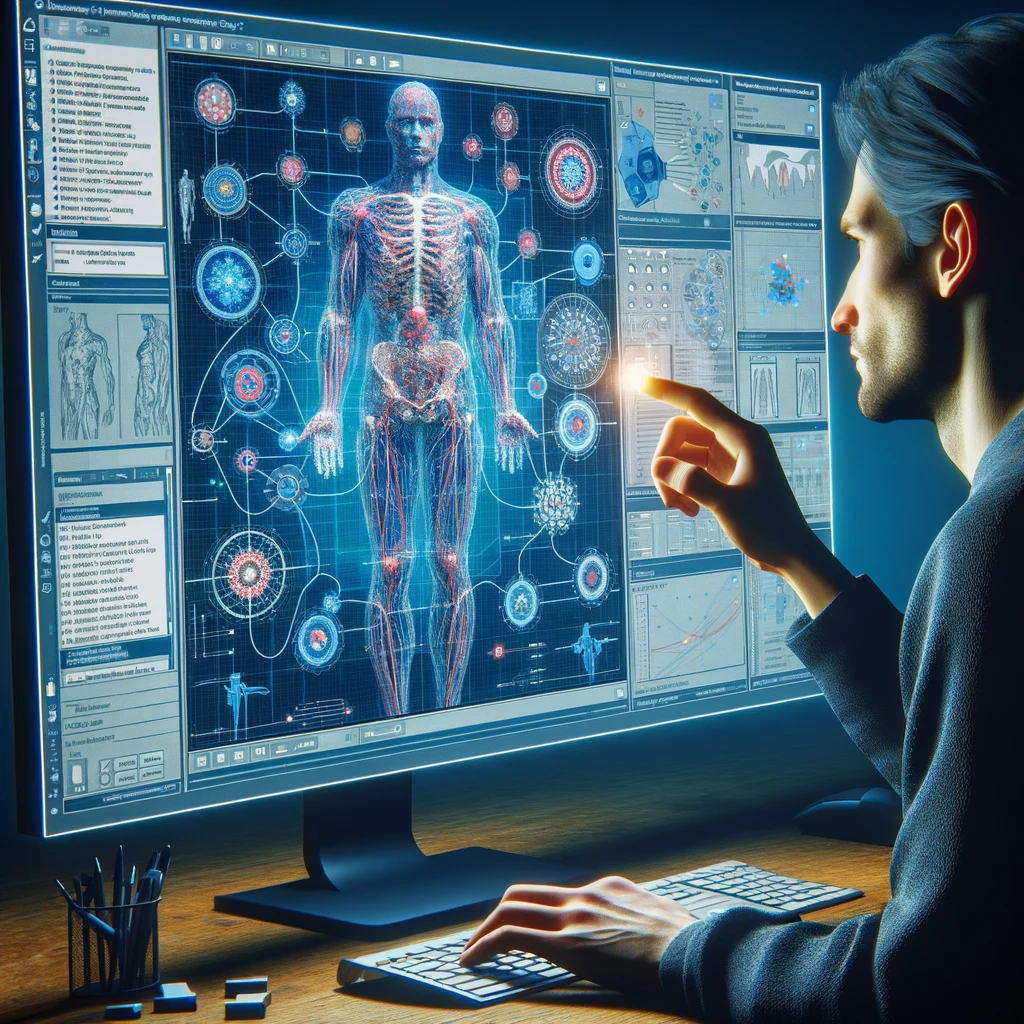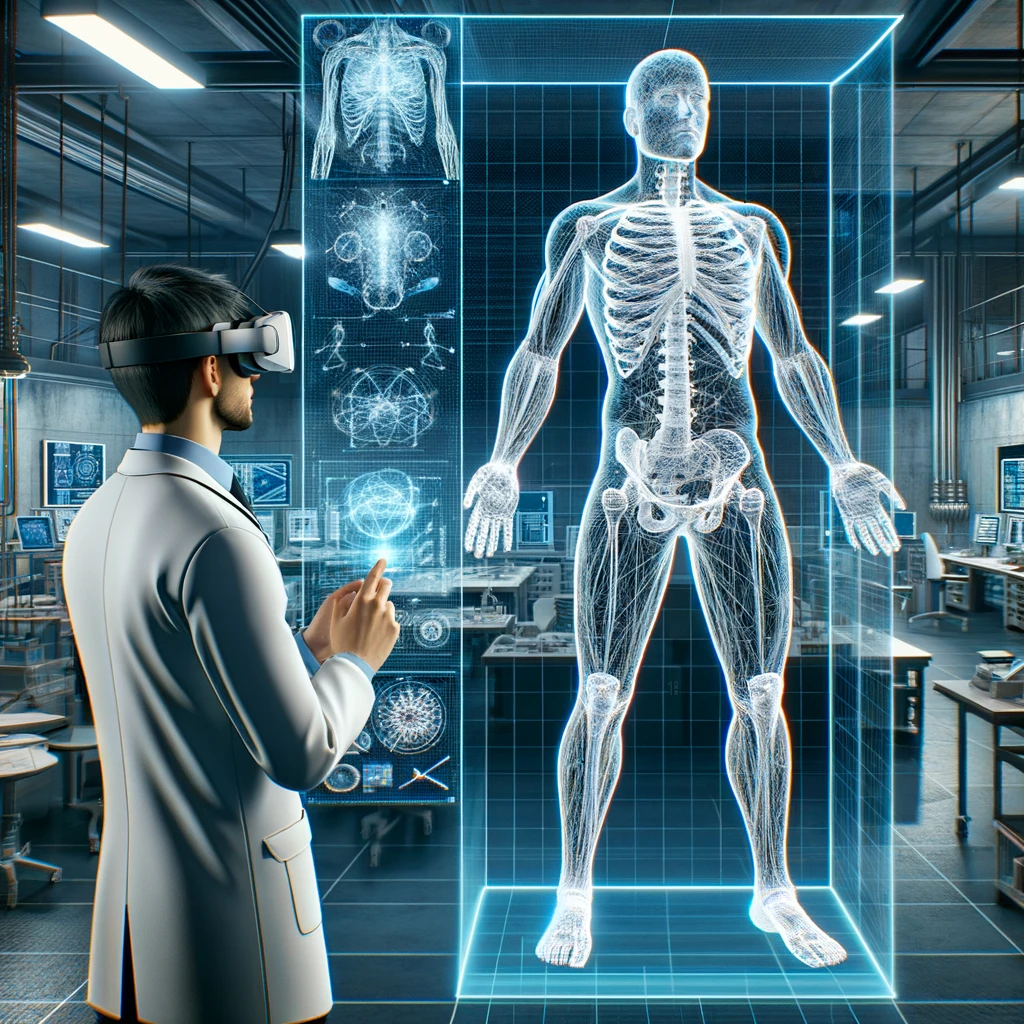In XSE you are the Primary System of Interest and...

In XSE, you are the primary system of interest, while at the same time, you are also the person in charge of maintaining your system, a position also known as the sustaining systems engineer, and whether or not you accept this position in your life, it is yours alone, and no matter what, you can’t hand the responsibility over to anyone. Since you are not the one who designed or developed your system of interest in the first place, as the sustaining systems engineer, you should seek to know and understand your system of interest that you are responsible for maintaining. If you don’t understand the essentials of what you are dealing with, whether it’s the building blocks of the system, or the sub-systems and how they work together to create the smooth-machine effect, then it will be more difficult to excel in your position of authority over your own system. You either know what you’re doing and do it well, or you risk system break down and ultimately system failure. An initial step to take as a sustaining systems engineer or Pilot SE of yourself, is to Reverse engineer the system that you are in charge of. If you are open to the idea that there is still more to learn, more room for you to grow … get ready for take off… because if you sharpen your system, you might find that you can go farther, faster, and higher making the XSE Flight analogy into a reality.
...you are the sustaining systems engineer of yourself...

Sustaining systems engineers, also known as support engineers or maintenance engineers, play a critical role in ensuring the ongoing operation, maintenance, and improvement of complex systems throughout their lifecycle. Here are some considerations regarding the need for sustaining systems engineers:
Industry and Sector: Sustaining systems engineers are needed across various industries and sectors where complex systems are deployed, including aerospace, defense, automotive, manufacturing, healthcare, telecommunications, energy, and information technology. The prevalence of sustaining systems engineer roles may be higher in industries with long-lived, mission-critical, or safety-critical systems that require ongoing support and maintenance.
System Complexity: The complexity of modern systems, including interconnected systems of systems, often necessitates dedicated support and maintenance efforts. Sustaining systems engineers are required to address issues such as system integration, interoperability, reliability, safety, security, and performance optimization over time.
Lifecycle Stage: The need for sustaining systems engineers is typically greatest during the operational and post-deployment phases of the systems engineering lifecycle. Once a system is deployed and operational, sustaining engineers are responsible for monitoring its performance, addressing issues and root cause analysis for resolution, implementing updates and fixes, and ensuring compliance with requirements and standards.
Technology Evolution: Advances in technology often require support activities to keep systems up-to-date, secure, and compatible with emerging technologies. Sustaining systems engineers may be involved in technology refresh initiatives and legacy system modernization efforts.
Risk Management: Sustaining systems engineers are instrumental in identifying, assessing, and mitigating risks associated with system operation and maintenance. They conduct risk assessments, reliability analyses, and failure mode and effects analyses (FMEAs) to proactively address potential issues and vulnerabilities, minimize downtime, and maximize system availability and uptime.
Overall, the need for sustaining systems engineers is pervasive with complex systems. Their expertise in system support, maintenance, troubleshooting, and risk management is essential for ensuring the long-term success, reliability, and sustainability of mission-critical systems.
...even if you shirk your position over your system.

To deny one’s position in life does not remove the reality or responsibility. Have you been a good sustaining systems engineer in your own life? When a person denies their role or responsibility over themselves, several detrimental consequences can occur:
Lack of Accountability: Denying one’s responsibility over themselves leads to a lack of accountability for their well-being and overall functioning. Instead of taking proactive steps to manage their health, personal development, and overall life trajectory, they may passively accept circumstances or rely on external factors to dictate their outcomes.
Limited Agency: By denying their role in managing their own system, individuals relinquish their agency and autonomy over their lives. Instead of actively shaping their future and making intentional choices, they may feel powerless or resigned to their circumstances, leading to a sense of helplessness and stagnation.
Risk of Neglect: Neglecting one’s role as the sustaining systems engineer can result in neglecting essential aspects of self-care, personal growth, and development. Without proactive attention and maintenance, individuals may neglect their physical health, mental well-being, and emotional resilience, leaving them vulnerable to adverse outcomes and challenges.
Dependency on External Factors: Denial of personal responsibility may lead individuals to rely excessively on external factors, such as societal norms, cultural expectations, or external authorities, to guide their behavior and decision-making. This dependency can limit personal growth, autonomy, and self-efficacy, as individuals may prioritize conformity over authenticity and personal agency.
Stagnation and Regression: Without active engagement in self-management and personal development, individuals risk experiencing stagnation or regression in various areas of their lives. Without ongoing reflection, learning, and adaptation, they may struggle to adapt to changing circumstances, overcome challenges, or achieve their full potential.
Overall, denying one’s role of responsibility over themselves can lead to a lack of accountability, limited agency, neglect of essential aspects of self-care, dependency on external factors, and stagnation or regression in personal growth and development. Recognizing and embracing this role empowers individuals to take proactive steps to manage their well-being, pursue personal goals, and lead fulfilling and purposeful lives.
What does it mean to be the Primary System of Interest?

Being the primary system of interest refers to the concept of acknowledging oneself as the main entity or system to be managed, improved, and maintained. In various contexts, such as personal development, self-improvement, or holistic well-being, individuals recognize themselves as the primary system of interest, understanding that their thoughts, actions, and choices significantly impact their overall quality of life and outcomes.
Here’s an explanation of what it means to be the primary system of interest:
Self-Awareness: Recognizing oneself as the primary system of interest begins with self-awareness, an understanding of one’s own needs, desires, strengths, and areas for improvement. By cultivating self-awareness, individuals gain insight into their values, goals, and priorities, enabling them to make informed decisions and take purposeful actions aligned with their personal aspirations.
Self-Management: Being the primary system of interest involves taking responsibility for one’s own well-being and personal development. This includes managing physical health, mental well-being, emotional resilience, relationships, career, finances, and other aspects of life. By practicing self-discipline, self-regulation, and self-care, individuals empower themselves to thrive and flourish in various domains.
Continuous Learning and Growth: Embracing the role of the primary system of interest entails a commitment to continuous learning and growth. Individuals seek opportunities for self-improvement, skill development, and knowledge acquisition, both professionally and personally. By embracing a growth mindset and a willingness to challenge themselves, individuals foster resilience, adaptability, and lifelong fulfillment.
Goal Setting and Achievement: As the primary system of interest, individuals set meaningful goals and work towards their fulfillment. By defining clear objectives, creating action plans, and tracking progress, individuals strive to achieve their aspirations and realize their full potential. Goal setting provides direction, motivation, and a sense of purpose, guiding individuals on their journey of personal and professional fulfillment.
Self-Reflection and Adaptation: Being the primary system of interest involves regular self-reflection and adaptation to changing circumstances. Individuals take time to assess their progress, evaluate their actions and decisions, and make adjustments as needed to stay aligned with their values and goals. By cultivating self-awareness and mindfulness, individuals navigate life’s challenges with resilience and grace.
Overall, being the primary system of interest means recognizing oneself as the agent in shaping one’s own life and experiences. It involves self-awareness, self-management, continuous learning (truth seeking) and growth, goal setting and improvement, and self-reflection and adaptation. By embracing this role, individuals empower themselves to lead fulfilling, purposeful, and authentic lives aligned with their values and aspirations.
...and what does it mean to be the pilot?

To be the “pilot of the program” typically means to be in a position of leadership or control, guiding and directing the course of a project, initiative, or endeavor. This metaphorical expression often implies that the individual is responsible for making key decisions, setting goals, coordinating activities, and ensuring the successful implementation of the program. A systems engineer, whether designing a new system or acting as the sustaining systems engineer of an existing system, plays a role akin to that of a pilot when operating a systems engineering program. Ultimately, systems engineers take responsibility for the success of the program, just as a pilot is accountable for the safety and welfare of passengers and crew. They lead by example, demonstrate professionalism and integrity, and take ownership of project outcomes, ensuring that the program achieves its intended objectives and delivers value to stakeholders.
In summary, a systems engineer serves as the pilot when operating a systems engineering program, guiding the project from inception to completion, navigating through complexity, managing resources, monitoring progress, making adjustments, ensuring safety and reliability, communicating effectively, and taking responsibility for the success of the endeavor. Through their leadership, expertise, and dedication, systems engineers play a critical role in orchestrating the successful execution of systems engineering programs and delivering innovative solutions to real-world challenges.
Apply XSE to your own system to be a Pilot Systems Engineer

In XSE, when an individual takes on both the role as a pilot (taking the lead in testing and iterating improvements) and the sustaining systems engineer (maintaining and refining personal integrity and growth) using XSE methods and strategies, that person is referred to as the Pilot SE.
This approach implies that just like in traditional systems engineering, an individual can break down their life into various subsystems (health, career, relationships, personal goals, mental well-being, etc.), assess their interactions, and optimize them for overall balance and advancement. Applying that to human development brings in the concept of continuous self-improvement, resilience, and adaptability—just like any system designed for integrity and advancement. In systems engineering in general, the focus is on holistic integration—ensuring that each component works harmoniously toward an overarching objective or “desired result”, and XSE has customized systems engineered so that any individual can leverage its power.
By thinking of oneself as a unique system (there’s only one version of each person), you take ownership not only of co-designing but also of sustaining that system. You become the pilot who experiments with various strategies and life approaches (iterative testing), and the engineer who ensures that the system remains functional, aligned with core values, and adaptable to changes (life’s uncertainties). This perspective is empowering because it frames personal development as a structured, intentional process rather than something that happens only by chance. It also brings a high level of self-awareness and intentionality to one’s growth, allowing someone to chart their course with both short-term actions and long-term outcomes in mind.
XSE’s role as a Pilot SE is a profound and innovative application of systems engineering principles. It reflects how complex (especially today) and integrated human life is, requiring thoughtful design and continuous adaptation, elevating the process of personal development to a structured and purposeful engineering discipline.
Take on the role of being a Pilot Systems Engineer

When a person takes on the role of a sustaining systems engineer of themselves as a complex system, they essentially become the Pilot SE of their own system, navigating through the complexities of managing their health, well-being, and personal development. Here’s how:
-
Setting Objectives: Similar to a pilot charting the course for a flight, the individual defines their objectives, goals, and priorities in managing their own system. This could include goals related to physical health, mental well-being, career development, personal relationships, and overall quality of life.
-
Monitoring Performance: Like a pilot monitoring the performance of an aircraft, the individual monitors various aspects of their own system, including physical health indicators, emotional states, cognitive functioning, productivity levels, and fulfillment in different areas of life. They pay attention to signals and feedback from their body, mind, and environment to assess how well they are doing.
-
Identifying Issues: Just as a pilot identifies issues or anomalies during flight, the individual identifies areas of concern or potential improvement within their own system. This could involve recognizing symptoms of illness or injury, identifying sources of stress or dissatisfaction, or pinpointing areas for skill development or personal growth.
-
Implementing Solutions: Similar to a pilot troubleshooting and addressing issues mid-flight, the individual implements solutions to address issues within their own system. This could involve adopting healthy lifestyle habits, seeking medical treatment or therapy, learning new coping strategies, setting boundaries, or seeking out supportive resources and relationships.
-
Adjusting Course: Like a pilot making adjustments to the flight path based on changing conditions, the individual adjusts their approach to self-management based on feedback, experience, and changing circumstances. They may experiment with different strategies, seek out new information or resources, or recalibrate their goals and priorities as needed to stay on course toward their objectives.
-
Managing Risks: Similar to a pilot managing risks during a flight, the individual manages risks within their own system to maintain health, well-being, and overall functioning. This could involve identifying and mitigating factors that contribute to stress, illness, or burnout, as well as proactively addressing potential challenges or setbacks.
-
Continuous Improvement: Like a pilot striving for continuous improvement in their skills and performance, the individual engages in ongoing self-assessment, learning, and development to optimize their own system. They seek out opportunities for growth, seek feedback from trusted sources, and cultivate resilience and adaptability to navigate life’s challenges.
Overall, taking on the role of a sustaining systems engineer of oneself as a complex system is akin to being the pilot of one’s own journey through life. It involves charting a course, monitoring performance, identifying and addressing issues, adjusting course as needed, managing risks, and striving for continuous improvement to achieve personal objectives and maintain optimal functioning.
Being a Pilot Systems Engineer and the SOI Simultaneously

Being the pilot of a systems engineering program while simultaneously being the system of interest entails several key considerations:
Self-Awareness and Reflection: The pilot must have a deep understanding of their own goals, values, needs, strengths, and limitations. They engage in self-reflection, self-assessment, and self-monitoring to identify areas for improvement, set meaningful objectives, and track progress towards personal or collective goals.
Collaboration and Co-Creation: The pilot collaborates with interdisciplinary teams, stakeholders, and partners to co-create solutions. They seek domain expertise, insights, and feedback to inform the development and evaluation of interventions or strategies.
Ethical and Human-Centered Design: The pilot prioritizes ethical considerations, human rights, and user-centric principles in the design and implementation of systems engineering solutions. They advocate for inclusivity, accessibility, and diversity to ensure that the needs and interests of stakeholders are taken into account and respected.
Continuous Learning and Adaptation: The pilot embraces a mindset of continuous learning, experimentation, and adaptation in their quest for personal or collective improvement. They remain open to feedback, new ideas, and alternative approaches, and they iterate on their strategies, methods, and interventions based on empirical evidence and experiential learning.
Empowerment and Agency: The pilot empowers themselves and others to take ownership of their own development, well-being, and improvement. They foster a culture of accountability, and empowerment that enables individuals to make informed choices, pursue their aspirations, and thrive in their personal and professional lives.
Overall, being the pilot of a systems engineering program where the individual is simultaneously the system of interest requires a holistic and integrative approach that combines technical expertise, human-centered design principles, ethical considerations, and a deep understanding of human behavior, cognition, and experience. By leveraging systems thinking, interdisciplinary collaboration, and participatory approaches, individuals can engineer solutions that enhance their own lives while contributing to the greater good of society.

